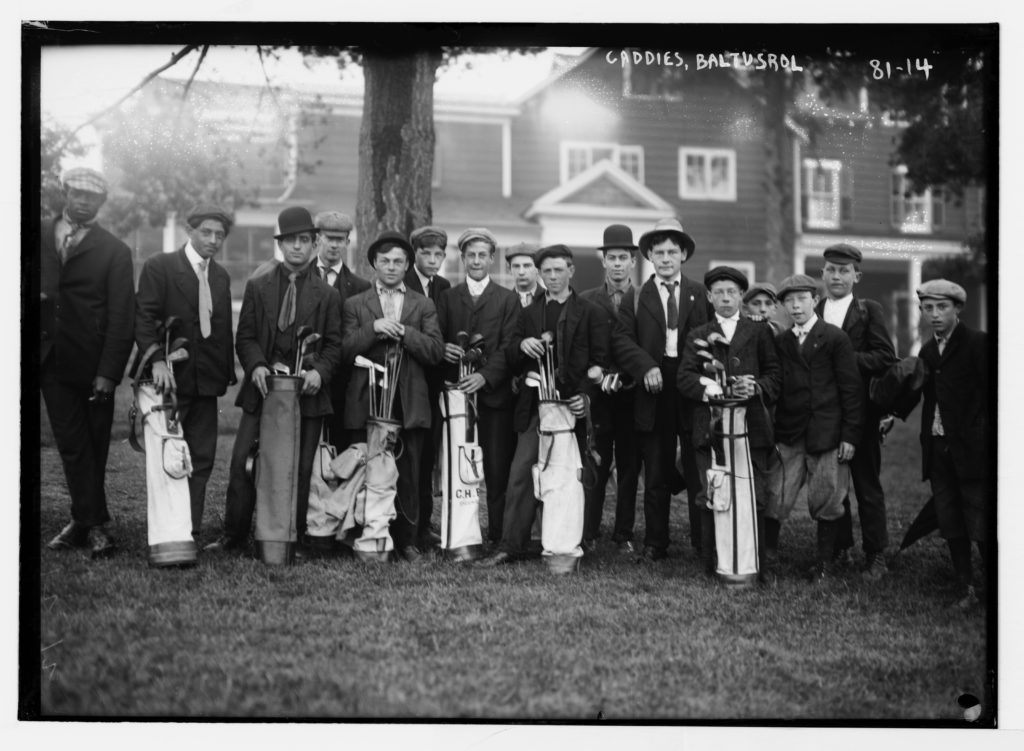Commentators on the brutal economic fallout of the pandemic rarely fail to mention the plight of food service workers, especially waiters and waitresses. But during this hour of crisis, could we also spare a thought for those of us at the bottom of golf’s food chain? Talking about caddies.
And yes, I mean “us,” because since the place opened three and a half years ago, I’ve been a part-time looper at the magnificent, Coore & Crenshaw-designed Trinity Forest Golf Club in south Dallas, and it’s been a rich, rewarding experience. In addition to the slimming effects of seven-mile hikes—with luggage—I’ve benefited mightily from the friendships I’ve made, and from the main perk of caddie-ship at private clubs everywhere: an occasional opportunity to play the course.

I’ve also enjoyed the Zen-like feeling of an untethered mind that comes with the territory. Between cleaning the clubs, finding the balls, and mis-reading the greens, caddying allows me to ponder topics big and small, including the very fact that I’m walking around with a bag on my back. Uniquely in the world of sports, we caddies are essentially valets. What would it be like, I’ve wondered as I trudge up the hill on number fifteen, if the performers in other games had a strategist/best buddy/water boy on the field of play? Baseball, for example, would be hilarious (and crowded) if the catcher’s assistant wanted a curveball for the next pitch, and the pitcher’s adviser preferred the slider, and the batter’s Sancho Panza recommended a heavier bat, a spit in the dirt, or an underwear adjustment?
Only golfers, as far as I know, go into battle with help. It has always been thus. Just look at the oldest existing golf paintings. There, in these 18th and 19th Century depictions of The Big Match, you’ll see that one of the onlookers always has a handful of hickory-shafted clubs hooked beneath his arm. Bags were invented later.
Caddies have been depicted in literature as bums with dental problems counting the minutes to their next drink (see books by David Feherty), to seers and as sages, as in the unintentionally laughable Legend of Bagger Vance. The reality is that we’re much more like the waiters and waitresses who are suffering so much at the moment. Long before the internet shrunk the world, caddies have toiled in the insecure, benefit-free gig economy.
We asked garrulous Tony Tubbs, age 47, a full-time caddie, how he’s filling up his days as the world plays hide-and-seek with a virus.
“Oh, yardwork, spring cleaning, playing my guitar,” he said.
Any song in particular? “’Folsom Prison Blues,’” Tubbs replied. “Yeah, I sing along.
END
We will be adding new content daily to our News tab as long as the COVID19 pandemic keeps everyone home. Golf has always helped players stay healthy—by getting them outside, walking across a pleasant greensward, carrying clubs (or having an ambling conversation with their caddies if they’re lucky enough to have that companionable service available), swinging vigorously every little while and enjoying the company of friends. We hope these contributions will echo golf’s therapeutic benefits as we eagerly await the moment we can return to the links.
Curt and John

Recent Comments